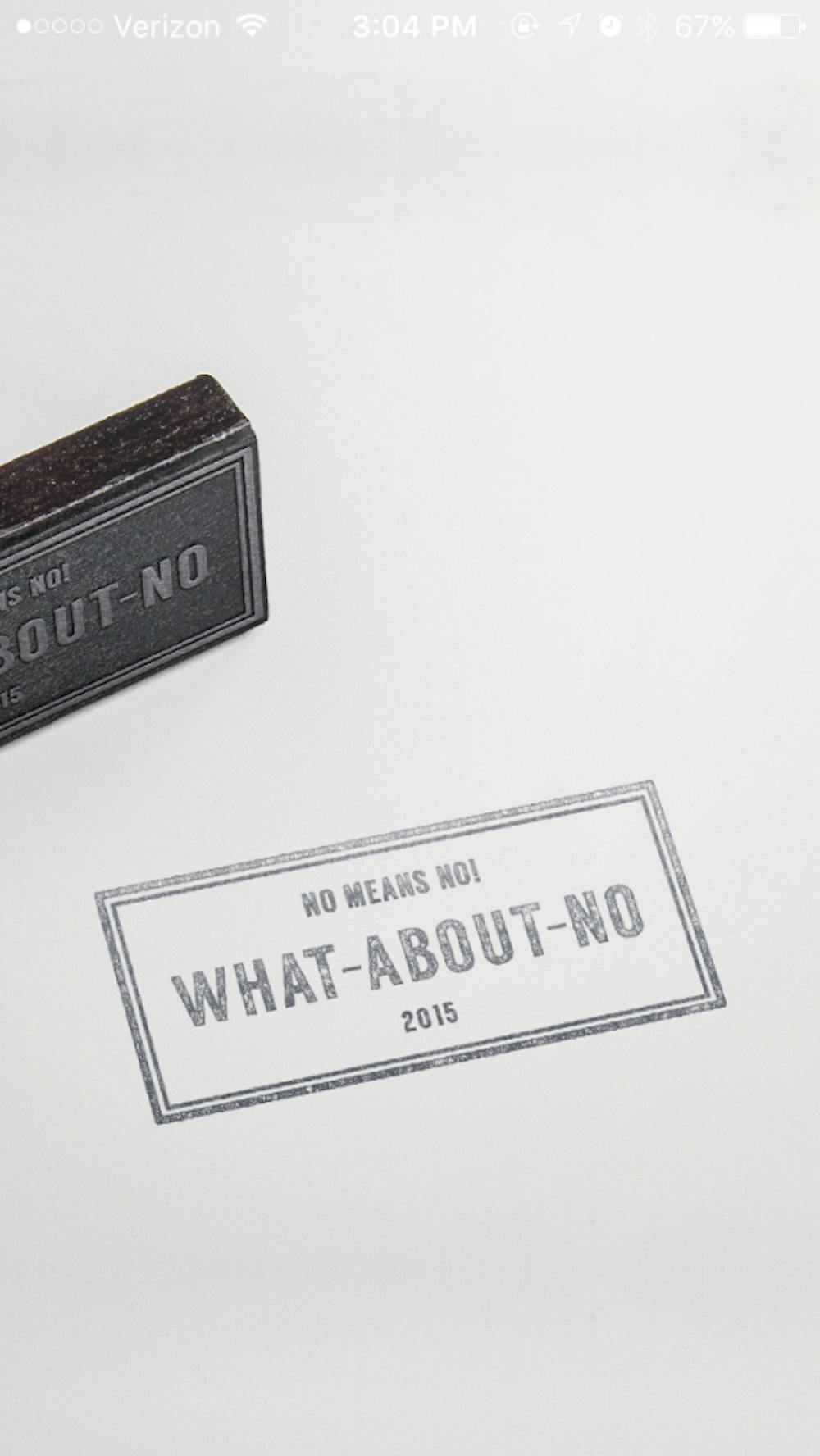The creators of a new smartphone app are hoping it might help students open lines of communication about consent, reduce the number of sexual assaults and encourage those who have been violated to report the crime.
The app is called We-Consent and is meant for people wishing to engage in sexual behaviors with one another. They can record themselves giving verbal consent to the action. The app is part of an app suite, consisting of four apps. Each has a specific function, including saying “no” and reporting an assault.
Michael Lissack is the executive director for the Institute for the Study of Coherence and Emergence, which designed the apps. The goal of the apps is to make college students understand they need to talk about sex before engaging in it, Lissack said.
“The app is a prop, really,” he said. “It doesn’t matter [to me] if the app is used or not; if it prompts discussion then it has done its job. Discussion is what’s important.”
ISCE started with only the We-Consent and What-About-No apps, released just after Labor Day. After receiving feedback from schools participating in beta testing, the I’ve-Been-Violated app was created.
The goal was to help the 85 percent of victims who did not report their assault to do so in a way that didn’t immediately involve a third party, according to the app’s briefing packet. Users record a statement of what happened to them, which can be accessed at a later date if they choose. It was added to the app suite three weeks ago.
Another app currently in the works is the Party-Pass app. The app will involve the use of QR codes and discussion prompts about sexual behaviors.
Jacki Clamme, a victim advocate for the Muncie Police Department, said she isn’t sure if the app is “the tool” to solve the problem of talking about consent and sexual assault.
“A lot can happen, especially when there’s alcohol involved,” Clamme said. “Are you really going to take the time and stop to pull out your phone and use the app?”
Even though it seems like the app might not be very beneficial, Lissack said people shouldn’t discount it right away as a valuable tool.
“It is very easy to hear the name of the app and draw conclusions about it, but just like anything else, you need to read all the information that goes with it first,” he said.
Another problem Clamme has with the app is the limited knowledge of the program. Although the app’s website, has all of the information, not many people are using it in the Midwest — and Lissack said he is aware of this.
“The problem is we are only doing pilot programs right now, and most of those are on the east and west coasts,” Lissack said. “[California and New York] are the only two states which have affirmative consent laws, meaning there must be proof of consent when a complaint is made against someone for sexual misconduct or assault.”
Kendra Storz, a sophomore animation major, said she thinks the app is a "good idea," but isn't sure if it's practical.
"I feel like there's just so much that could go wrong," she said. "And if there's alcohol involved, that could lead to more problems."
Lissack said the real issue is consent and getting people to understand “no one is entitled to touch someone else.” He said the lesson is not just for students, but for everyone.
“Consent is like a license — you don’t drive without a driver’s license, you don’t touch someone else without a license from them, their consent,” Lissack said.





